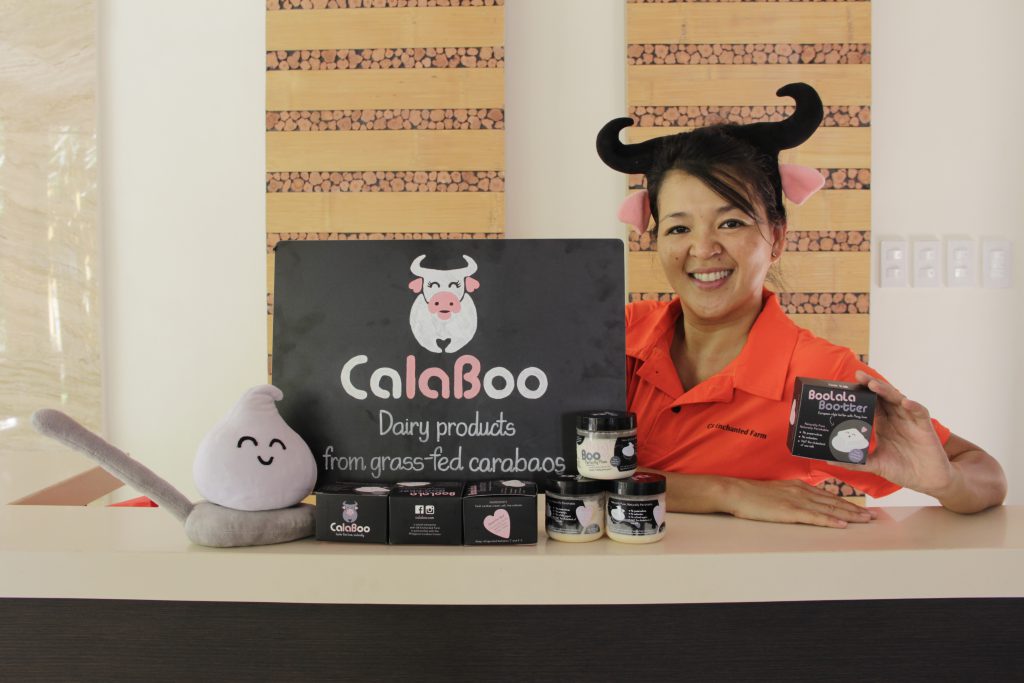Fueled by an optimized natural resource-the carabao’s milk, an end to the poverty of smallholder-farmers and their families is possible, according to Marie Cavosora, Founder and Chief Executive Officer of Calaboo, a Gawad Kalinga Enchanted Farm Social Enterprise.
She emphasized this during an innovation workshop titled “Advancing Dairy Products through Technology Development” held at the Philippine Carabao Center (PCC) National Headquarters and Gene Pool today (August 31).
“If the Filipino farmers are encouraged to use the carabao as a source of milk instead of using it as a draft animal, then their income will quadruple or triple,” she said.
She, however, explained that there is a need to valorize the carabao and make people recognize that its milk is superior to the common cow’s milk.
She said that, compared to cow’s milk, carabao’s milk is richer and creamier; higher in fats, proteins, and milk solids; contains more calcium, phosphorus, Vitamin A and E, magnesium, and potassium; and has half the cholesterol of cow’s milk.
In support of this, Dr. Fiorello Abenes, Faculty and Institutional Development Manager of U.S. Agency for International Development Science, Technology, Research, and Innovation for Development (USAID STRIDE), said that indeed, there is a need to make high-value products out of the carabao’s milk.
The innovation workshop was organized by the USAID STRIDE following the signing of the Memorandum of Understanding (MOU) on the development of the Professional Science Masters (PSM) Program on Dairy Products Technology to be offered by the College of Home Science and Industry of Central Luzon State University (CLSU), signed by PCC, USAID STRIDE, and CLSU.
The activity aimed to bring together stakeholders from the dairy industry, concerned government agencies, and the academe to discuss some of the current challenges of the industry in the Philippines and also, to bridge the gap between the industry and the academe.
It also aimed to gather inputs from the stakeholders that will help improve the existing curriculum and the implementation of the PSM Program on Dairy Products Technology, as well as provide an opportunity to engage potential students and industry partners of the program.

